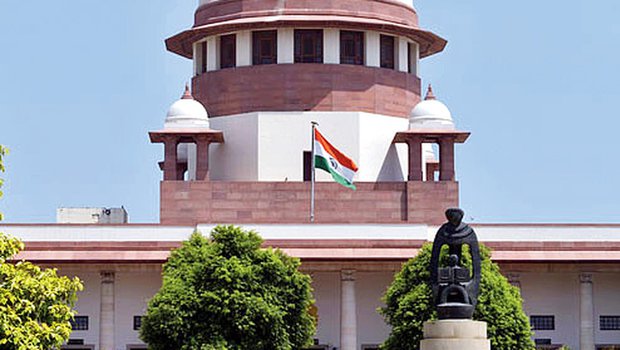Janjivan Bureau / New Delhi: A five-judge bench led by Chief Justice of India D Y Chandrachud, by a majority 4:1, on Thursday upheld the constitutional validity of Section 6A of the Citizenship Act, which granted citizenship benefits to illegal immigrants — mostly from Bangladesh, who entered Assam between January 1, 1966, and March 25, 1971.
The apex court pronounced its verdict on petitions challenging the constitutional validity of Section 6A which was inserted in the Citizenship Act 1955, after the signing of the Assam accord on August 15, 1985.
A constitution bench of Chief Justice DY Chandrachud, and Justices Surya Kant, M M Sundresh, J B Pardiwala and Manoj Misra, had reserved the judgment in the matter on December 12, 2023.
Section 6A says those who came to Assam on or after January 1, 1966, but before March 25, 1971, from specified territories, including Bangladesh, in accordance with the Citizenship Act amended in 1985, and since then are residents of the northeastern state, must register themselves under Section 18 for acquiring Indian citizenship. As a result, the provision fixes March 25, 1971 as the cut-off date for granting citizenship to Bangladeshi migrants in Assam.
Section 6A was inserted into the 1955 Act in furtherance of a Memorandum of Settlement called the ‘Assam Accord’ signed on August 15, 1985, by the then Rajiv Gandhi Government with the leaders of the Assam Movement to preserve and protect the Assamese culture, heritage, linguistic and social identity.
The apex court had heard arguments from Attorney General R Venkataramani, Solicitor General Tushar Mehta, senior advocates Shyam Divan, Kapil Sibal, Sanjay Hedge, C U Singh and others, for four days before wrapping up the hearing.
CJI Chandrachud and Justices Surya Kant, M M Sundresh and Manoj Misra, by a majority, upheld the validity of Section 6A in the Citizenship Act, however, Justice J B Pardiwala dissented. The CJI, reading out the majority judgment, said Parliament had legislative competence to enact it. Justice Pardiwala delivered a dissenting judgment to hold Section 6A as unconstitutional.
The CJI said that the Assam Accord was a political solution to the problem of illegal migration and Section 6A was the legislative solution. The apex court held that Section 6A was enacted to balance the humanitarian concerns with the need to protect the local population. The detailed judgment will be uploaded later in the day.
CJI Chandrachudsaid Section 6A of the Citizenship Act confers citizenship on those who migrated from Bangladesh to Assam until 24 March, 1971, and Article 6 and proviso to Article 7 confers citizens on a limited class. “Section 6A deals with those who are not covered by constitutional provision, that is those who migrated after July 26, 1949…..”, noted the bench.
The apex court said Section 6A enactment was a political solution to a unique problem faced by Assam due to the massive influx of illegal migrants into the state after the creation of Bangladesh, which had threatened its culture and demography. The apex court’s ruling applies to immigrants who came after March 25, 1971.
The apex court noted that the Centre could have extended the act to other areas as well, but did not do so because it was unique to Assam.

















